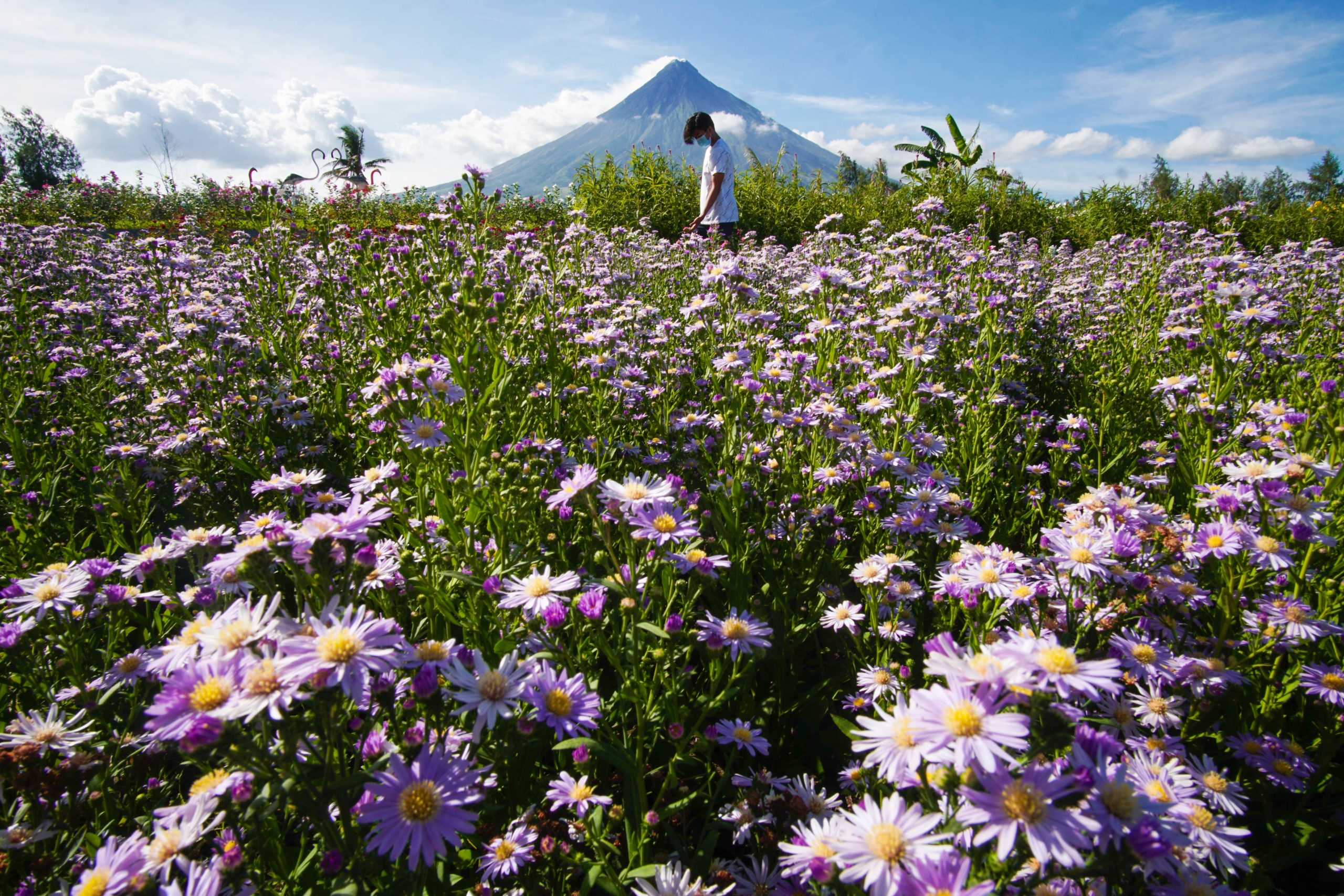Bicol tourism gradually reopens; safety measures in place
LIGAO CITY—Tourist destinations and hospitality establishments in the Bicol region have gradually reopened after three months of closure due to the public health crisis arising from the new coronavirus disease (COVID-19) pandemic.
At least 144 tourism-related enterprises have resumed operations, including the Cagsawa Ruins at Busay village in Daraga town, Albay, where an iconic bell tower of a 16th-century Franciscan church serves as foreground to the majestic Mayon Volcano.
Cagsawa Ruins started welcoming visitors on Tuesday. According to Daraga Mayor Victor Perete, tourism activities there contributed between P10 million and P12 million annually to the town’s economy before the pandemic forced its closure.

BLOOMING After three months of closure of the top tourist destination in Albay province which is the Cagsawa Ruins, Aster lavender flowers bloom on its garden and became a picture perfect spot for tourist having a beautiful background of the majestic Mayon volcano. Photo taken in Barangay Busay, Daraga town on June 24, 2020 Wednesday. —MARK ALVIC ESPLANA
Health protocols
Arlene Nogbos, owner of a restaurant inside the compound, said the reopening of the ruins gave her hope. “My stress was relieved. We suffered hunger for three months and we thought tourism and business are dead,” she said.
Since COVID-19 remains a threat, the local government reminded tourists to observe health protocols, particularly the wearing of face masks and physical distancing.
Hotels and other accommodation establishments in Bicol have also resumed operations after complying with health and safety regulations and securing a certificate of authority to operate from the Department of Tourism (DOT), said Fe Buela, officer in charge of DOT Bicol.
Article continues after this advertisementThe DOT is tapping social media platforms to help revive Bicol’s tourism industry that used to attract domestic and foreign tourists, Buela said. She said they hoped to offset the decline in foreign arrivals by focusing on the local tourism market.
Article continues after this advertisementIn Sorsogon province, Gov. Francis Joseph “Chiz” Escudero ordered the Sorsogon Provincial Tourism, Culture and the Arts Office to inspect all establishments before they could reopen to tourists.
Only Sorsogon residents are allowed in these establishments at 50 percent of their capacity, said provincial Tourism Officer Bobby Gigantone.
—MICHAEL JAUCIAN